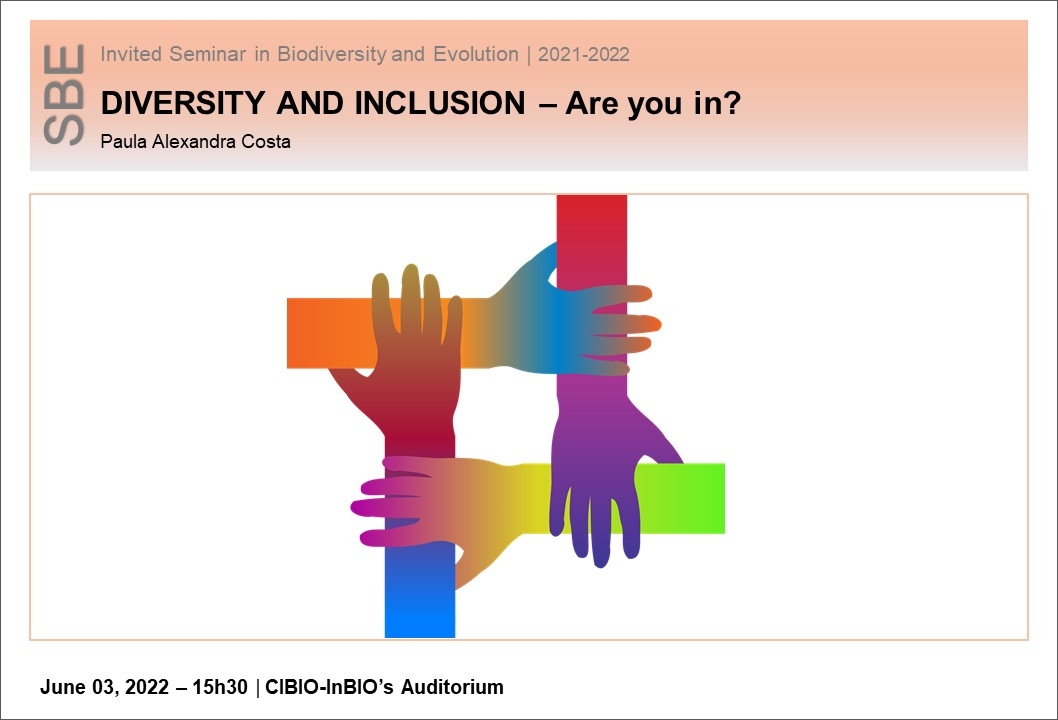DIVERSITY AND INCLUSION – Are you in?
03 Jun 2022 - Paula Alexandra Costa | 15h30

INVITED SEMINAR IN BIODIVERSITY AND EVOLUTION
Society has always emphasized the limitations of individuals' diversity rather than their potential. Considerable advances have been made in human rights and social justice, resulting in a willingness by society to accept and change preconceptions about diversity, disability, and inclusion. There is also undeniable global advancement regarding the inclusion of students with disabilities in higher education, which is reflected in the continuous increase in enrollments. In the inclusive philosophy, diversity is conceived by embracing different abilities, gender and social differences, as well as cultural background. These differences are seen as another element of social diversity, a benefit rather than a problem. To this end, it is important that inclusive policies incorporate the social model that removes the source of inequality experienced by different people from the individual and places it in the society. What can decrease negative community attitudes and increase diversity awareness? What is the most effective way to address some barriers, such as bureaucracy or architectural barriers? What kinds of support make the community more inclusive without compromising basic or complex activities? The factors that influence the acquisition of negative attitudes towards the issue of inclusion are known: lack of time, funding, knowledge, training, adequate resources or support and coordination. Regarding the factors that enable the development of positive attitudes we can find: information and contact with the diverse people, small working groups, training in interpersonal skills or mentoring programs for peers and other individuals, accessibility and universal design. Thus, and in response to this knowledge, there is a need to carry out consulting and community support programs, raising awareness and encouraging positive attitudes in all environments. Socially sensitive adaptations must be introduced to achieve genuine inclusion of all individuals. This corresponds to promoting inclusive practices for all and not only for specific groups, like people with disabilities.
Paula Costa has a degree in Occupational Therapy – Escola Superior de Saúde – Instituto Politécnico do Porto, a Master in Adapted Physical Activity – Faculdade de Desporto, Universidade do Porto (UP), and she is a Doctoral Student in Occupational Safety and Health – Faculdade de Engenharia, UP. In 30 years of professional experience, Paula has developed clinical practice work (physical rehabilitation area), training (coordination and teaching in Occupational Therapy courses and others) and consultancy work (accessibility and inclusion area). Among the consultancy work, the following stand out: coordination of the Department of Innovation and Development of the Mobilitec company, interventions in Galeria da Biodiversidade do Museu de História Natural e da Ciência (UP), training in welcoming special populations for employees of cultural entities, and social projects and cultural activities for the inclusion of people with disabilities, in partnership with Câmara Municipal de Mértola.
[Host: Rita Covas, Animal Sociality - SOCIALITY]